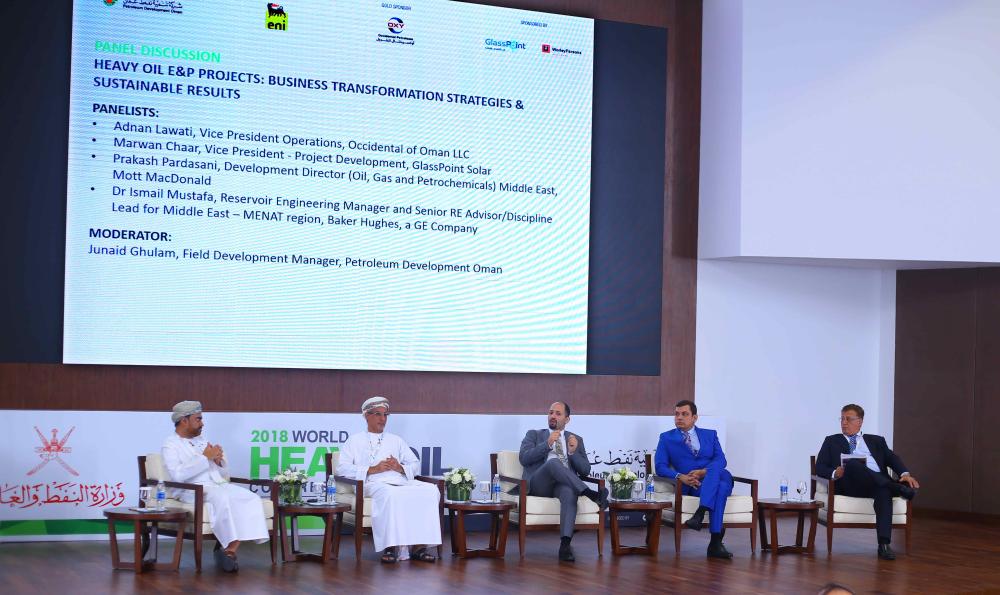
WHOC lays roadmap to energy mix of the future
More than 3,000 international industry professionals and experts are addressing challenges and discussing opportunities across the heavy oil value chain at the 2018 World Heavy Oil Congress & Exhibition (WHOC). Held for the very first time in the Middle East at the Oman Convention & Exhibition Centre in Muscat, the event is one of the largest congregations of heavy oil professionals around the globe.
The second day on Tuesday featured four thought-provoking sessions as part of the Strategic Conference, beginning with ‘Heavy Oil E&P Projects: Business Transformation Strategies and Sustainable Results’. Moderated by Junaid Ghulam, Field Development Manager at Petroleum Development Oman, the panel included: Adnan Al Lawati, Vice President of Operations at Occidental of Oman, Marwan Chaar, Vice President of Project Development at GlassPoint, Prakash Pardasani, Business Development Director (Oil, Gas and Petrochemicals) for the Middle East at Mott MacDonald, and Dr. Ismail Mostafa, Reservoir Engineering Manager and Senior RE Advisor & Discipline Lead for the Middle East – MENAT region at Baker Hughes, a GE company.
“We believe in the growing convergence between renewable and conventional energy, which offers massive benefits to oil producers. Economics is the main driving factor for renewable energy deployment in addition to being environmentally friendly,” said Chaar. “Our technology at GlassPoint has been proven at scale and has operated on oilfields around the world for years. As we continue to seek maximum cost-efficiency, we are innovating every part of the system. We are also exploring existing best practices and finding ways to improve them for safety and ease of operation.”
Pardasani said “the integration of EOR and renewals will play a key role in the energy transition and serving the growing demand of a growing population over the next two decades. There won’t be an absolute debt on oil, simply, one will displace the other and we will see a more diverse energy mix in the future comprised of oil, gas, coal and renewables.”
Dr. Mostafa said: “There has been an improvement in technology. For off shore heavy oil production, technology is going to play a large role. It’s a finite window and if we don’t move quick, we will miss it.”
Other topics discussed and deliberated included research and development, field analytics, and the impact of global decisions on the industry. “The Middle East has recognized the changes of the global economy and diversification across the globe both on the narrative of peak demand and supply projections. However, oil will still be an important factor and the region will continue to prioritize critical investments in the oil and gas industry because it is mandatory for the development of the region,” said Mustafa Ansari, Senior Economist at APICORP. “The oil and gas industry is now understanding that they need to be more resilient. They need to remain competitive and collaborate with the private sector to encourage greater investments in order to be able to produce and sustain production both domestically and externally.”
Facilitating greater knowledge exchange between industry peers, the Technical Conference addressed a number of engaging topics including innovation, Enhanced Oil Recovery, data management and the Internet of Things, reservoir modeling and management, and downstream processes.



























